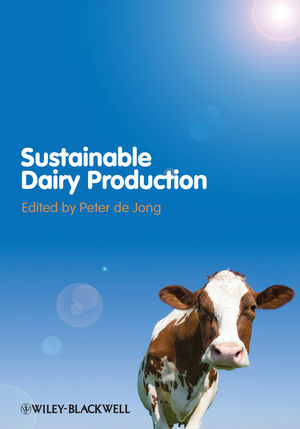
Forward Contracting Leads Farm Bill Battle
Consumer perception of milk in the 1980s and early 1990s was significantly different than now. Fluid beverage milk sales declined precipitously from a peak of more than 60 billion pounds per year during the early ’70s to 54 billion pounds now. And, of course, on a per capita basis, the decline has been even more significant — 270 pounds per capita during the ’70s to 180 pounds now, a whopping 33 percent drop.
The declines are largely attributable to increased
competition from a variety of new alternative beverages and to
substantially increased marketing of competing lifestyle products, often
positioned as “better for you.” The press is fascinated with
and frequently touts these so-called healthier products providing a double
whammy negative effect, i.e., lost sales and fewer store shelf facings.
Lifestyle marketing had its origins in what I call the
“Birkenstock” cult, which was born out of the hippie phenomenon
and was based on sustainability of the universe, sustainable agriculture,
protection of the forests and the environment. Ben and Jerry’s ice
cream perfected lifestyle marketing by combining it with cause marketing
and donating a percentage of revenues to sustainability issues. The
“Birkenstock” sustainability influence is now being combined
with the “it’s better for you” image.
Lifestyle marketing comes in many images. Soymilk and
organic products have fairly clear product definitions permitting consumers
to rely on what they are. However, there are a number of other terms that
are often used to convey “lifestyle” images. For example,
“natural” has good marketing appeal, but the meaning of natural
is not always clear; “local” is better imagery than more
distant or foreign.
Humane treatment of animals is a very strong element
of lifestyle marketing. Small, family-run companies versus large
corporations is also an important concept of lifestyle marketers. The use
of drugs, chemicals or confined spaces for animals is an anathema.
The cutting edge lifestyle retailer is Wild Oats.
Perry Odak, former CEO of Wild Oats, was CEO of Ben & Jerry’s for
several years as Ben and Jerry were phasing out of running the company they
founded.
Whole Foods has positioned itself as a lifestyle
retailer. They offer many organic products and their stores are smaller
with a more intimate format. (Whole Foods is in the process of
acquiring Wild Oats, although the merger is currently under judicial
review.)
Safeway is rapidly and successfully repositioning
itself in a more lifestyle format. In fact, the company calls it a
“lifestyle” program and it provides more discretion to local
managers in the selection of “local” products; friendlier, more
service oriented with better trained employees; and more space allocated to
organics (their “O” line). Safeway claims to have already
reclaimed a large number of customers previously lost to Wal-Mart on the
low price side of the retail food business as well as customers previously
lost to Whole Foods, which is on the higher price side of Safeway.
Wal-Mart has moved to shore up its consumer appeal by
increasing organic offerings including an increasing array of organic dairy
products.
The organic food market is growing at a rate of 20 to
25 percent per year, and is valued at about $15 billion in annual sales,
constituting about 2? to 3 percent of the total food and beverage market.
Organic food and beverage sales are projected to have 6 to 7 percent of
market share in five years.
Dairy and produce are the fastest-growing categories.
Organic dairy products are about 3? percent of total dairy product sales
and total about $2.5 billion. Sales of organic dairy products grew about 24
percent last year. Fruits and vegetables constitute about 38 percent of
total organic food and beverage markets, and dairy is about 15 percent.
Tip Tipton, chairman and chief executive officer of
the Washington, D.C.-based Tipton Group, is the former CEO of the
International Dairy Foods Association.
John D. Utterback: 1918-2007
John Davis Utterback, 88,
founder of Lexington, Ky.-based All Star Dairies Inc., died May 18. In
1958, Utterback founded All Star Dairies Inc., a dairy association with
more than 190 members. At All Star, John served as president, chief
executive officer and chairman of the board, and remained the driving force
of the company for 43 years. In the dairy industry, Utterback is renowned
for his entrepreneurial spirit and innovative thinking in product sales,
marketing, purchasing and packaging. His exuberance for life, keen mind,
inexhaustible dedication to his business and complete devotion to his
family will be truly missed. Born in Lawrenceburg, Ky., on August 10, 1918,
Utterback was one of five siblings. He received a bachelor’s degree
in social sciences and elementary education from Penn State Teachers
College in 1942 and a master’s degree in education from Columbia
University in 1946. As a young adult, his interests included teaching,
coaching basketball and guidance counseling. From 1942 to 1945, Utterback
served in the U.S. Army Air Forces at Gardner Field in Santa Ana, Calif.,
and also at Mitchell Field in New York where he served as chief clerk.
After working in sales and marketing for the Louis Sherry Co. in New York,
Utterback founded Franchise Marketers in 1955, and served as president of
Hopalong Cassidy Endorsements.
Stencil Receives WDPA Presidents Award
LaVern Stencil, president of Marathon Cheese, received
the 2007 Wisconsin Dairy Products Association President’s Award July
15 at the 2007 Dairy Symposium at The Grand Geneva Resort in Lake Geneva,
Wis. Stencil has spent more than 45 years at the Marathon, Wis.-based
cheese processor, where he began working in 1961 in production. He served
numerous positions over the years, rising through the ranks until 1997,
when he became president. Stencil has been an integral part of the success
and growth of Marathon Cheese; the company has two packaging operations in
Wisconsin (Marathon and Medford), one in Booneville, Miss., and another in
Mountain Home, Idaho. Stencil is a member of the Wisconsin Dairy Products
Association’s board of directors, and also serves on the boards of
the National Cheese Institute, Dairy State Academy and Marathon County
United Way. This year’s winner was selected by the WDPA Board of
Directors from a slate of nominees offered by the WDPA Presidents Advisory
Committee. The nominees were chosen based on their contributions to the
Wisconsin dairy industry and Wisconsin Dairy Products Association.





